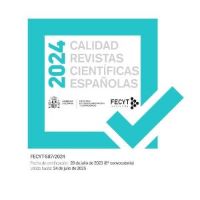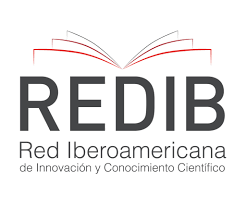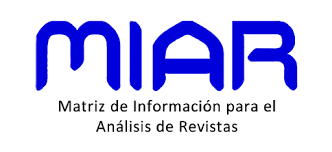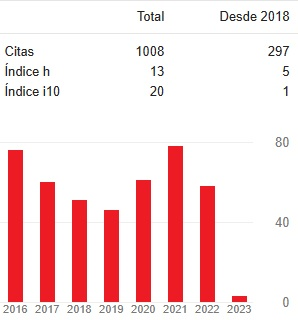The Inter-American Court of Human Rights as a source of distributive justice?
The concept of Transformative Social Reparation to indigenous peoples and its ius-philosophical implications
DOI:
https://doi.org/10.51743/cih.303Keywords:
Indigenous rights, ethnic relations, distributive justice, international organizations, reparation, victimsAbstract
This article offers a multidimensional approach to the gestation process of a legal concept typical of the Latin American sphere: Transformative Social Reparation. The paper presents the results of a four-year investigation that sought to define the contributions of the Latin American socio-legal culture in claiming the social, economic, cultural, and environmental rights of groups and peoples. After a jurisprudential, historical-anthropological analysis and the application of techniques of the ethnographic method such as interviews and participant observation with indigenous communities of Colombia, the research defined the contours of Transformative Social Reparation as a legal innovation of Latin America and promoted by the Inter-American Court of Human Rights. Human rights. The study concludes that Transformative social reparation seeks to overcome the paradigm of returning the victim to the situation prior to the damage, to promote the transformation of the living conditions of the groups that have been victims of human rights violations. Especially in cases that before the crime, the people were already in a situation of vulnerability. For the author, this form of reparation has a redistributive potential that benefits the collective victims of human rights violations and is a clear advance in searching for supranational distributive justice.
Downloads
References
Agudelo, C. (2019). The Garífuna community of Triunfo de la Cruz versus the State of Honduras: territory and the possibilities and limits of the Inter-American Court of human rights verdict. Latin American and Caribbean Ethnic Studies 14 (3): 318-333, doi: https://doi.org/10.1080/17442222.2019.1673069
Aguilar Cavallo, G. (2020). Alimentación, agua y medio ambiente en tiempos de crisis (sanitaria) en Chile. En La emergencia sanitaria COVID-19 a la luz de la emergencia climática Retos y oportunidades, editado por Jiménez, H. y Anglés, M., 143-161. Bogotá, Colombia: Fundación Heinrich Böll.URL: https://www.dplf.org/sites/default/files/la_emergencia_sanitaria_covid-19_a_la_luz_de_la_emergencia_climatica.pdf
Böhm, M. (2017). Empresas transnacionales, violaciones de derechos humanos y violencia estructural en América Latina.” Revista Crítica Penal y Poder 1: 41-65. URL: https://revistes.ub.edu/index.php/CriticaPenalPoder/article/view/19764/22496
CIDH. (2000). Informe 36/00. Caso 11 101 Masacre Caloto Colombia. Informe de 13 de abril de 2000. Washington D.C: OEA
CIDH. (2001). Caso Mayagna (Sumo) Awas Tingni vs. Nicaragua, Serie C, núm. 79. Sentencia de 31 de agosto de 2001. Washington D.C: OEA.
CIDH. (2009). Democracia y Derechos Humanos en Venezuela. Ser.L/V/II, Doc. 54, párr. 1054. Washington D.C: OEA.
Corte IDH. (1993). Caso Aloeboetoe y otros vs. Surinam (Reparaciones y Costas). Sentencia de 10 de septiembre de 1993. Washington D.C: OEA.
Corte IDH. (2004). Caso Masacre Plan de Sánchez vs. Guatemala (Reparaciones). Sentencia de 19 de noviembre de 2004. Washington D.C: OEA.
Corte IDH. (2005). Caso Comunidad indígena Yakye Axa Vs. Paraguay. Sentencia de 17 de junio de 2005 (Fondo, Reparaciones y Costas). Washington D.C: OEA.
Corte IDH. (2005). Caso de la Comunidad Moiwana Vs. Suriname. Sentencia de 15 de junio de 2005 (Excepciones Preliminares, Fondo, reparaciones y Costas). Washington D.C: OEA.
Corte IDH. (2006). Caso Comunidad Indígena Sawhoyamaxa Vs. Paraguay. Sentencia de 29 de marzo de 2006 (Fondo, Reparaciones y Costas). Washington D.C: OEA.
Corte IDH. (2007). Caso Saramaka vs. Surinam (Excepciones Preliminares, Fondo, Reparaciones y Costas). Sentencia de 28 de noviembre de 2007. Washington D.C: OEA.
Corte IDH. (2010). Caso Chitay Nech y otros vs. Guatemala. Sentencia de 25 de mayo de 2010 (excepciones preliminares, fondo, reparaciones y costas). Washington D.C: OEA.
Corte IDH. (2010). Caso Comunidad Indígena Xákmok Kásek Vs. Paraguay. Sentencia de 24 de agosto de 2010 (Fondo, Reparaciones Y Costas). Washington D.C: OEA.
Corte IDH. (2012). Caso Sarayaku vs. Ecuador (Fondo y Reparaciones). Sentencia de 27 de junio de 2012. Washington D.C: OEA.
Corte IDH. (2012). Caso Masacres de Río Negro Vs. Guatemala Sentencia de 4 de septiembre de 2012 (Excepción Preliminar, Fondo, Reparaciones y Costas). Washington D.C: OEA.
Corte IDH. (2015). Caso Comunidad Garífuna de Punta Piedra y sus Miembros Vs. Honduras Sentencia de 8 de octubre de 2015 (Excepciones Preliminares, Fondo, Reparaciones y Costas). Washington D.C: OEA.
Corte IDH. (2015). Caso Pueblos Kaliña Y Lokono Vs. Surinam Sentencia de 25 de noviembre de 2015 (Fondo, Reparaciones y Costas. Washington D.C: OEA.
Corte IDH. (2020). Caso Comunidades Indígenas Miembros de la Asociación Lhaka Honhat (Nuestra Tierra) vs. Argentina. Fondo, Reparaciones y Costas. Sentencia de 6 de febrero de 2020. Washington D.C: OEA.
De la Maza, F. (2014). Chile: Lo indígena como categoría censal. La disputa entre el reconocimiento y la autoadscripción. Journal of Iberian and Latin American Research 20 (3): 355-372, doi: https://doi.org/10.1080/13260219.2014.995873
Diagonal. 2010. Ocho activistas opuestos a Unión Fenosa asesinados en seis meses en Guatemala. Periódico Diagonal, abril 15. Acceso 8 de agosto de 2018. https://www.diagonalperiodico.net/
Duque Silva, G. (2021). Del control constitucional al control de convencionalidad: pasos jurídicos hacia la consolidación de instituciones de gobernanza global. Revista Española de Derecho Constitucional, 123, 167-201. doi: https://doi.org/10.18042/cepc/redc.123.06
Flórez-Vargas, C. (2016). El concepto de Derecho Mayor: una aproximación desde la cosmología andina. Revista Dixi. 18(24): 63-74. doi: https://doi.org/10.16925/di.v18i24.1523
Frisso, G. (2018). The Duty to Investigate Violations of the Right to Life in Armed Conflicts in the Jurisprudence of the Inter-American Court of Human Rights. Israel Law Review 51 (2): 169-191. doi: https://doi.org/10.1017/S0021223718000055
Gonza, A. (2016). Integrating Business and Human Rights in the Inter-American Human Rights System. Business and Human Rights Journal 1 (2): 357-365. doi: https://doi.org/10.1017/bhj.2016.18
González, M. (2015). Indigenous Territorial Autonomy in Latin America: An Overview. Latin American and Caribbean Ethnic Studies 10 (1): 10-36, doi: https://doi.org/10.1080/17442222.2015.1034438
Haughney, D. (2007). Neoliberal Policies, Logging Companies, and Mapuche Struggle for Autonomy in Chile. Latin American and Caribbean Ethnic Studies 2 (2): 141-160, doi: https://doi.org/10.1080/17442220701489555
Haughney, D. (2012) Defending Territory, Demanding Participation: Mapuche Struggles in Chile. Latin American Perspectives, 39 (4): 201–217. doi: https://doi.org/10.1177/0094582X12441515 .
Hernández, J. y Carrión, J. (2013). Las empresas transnacionales y los derechos humanos. Revista cambio social y cooperación en el siglo XXI (2): 113- 128. URL: https://dialnet.unirioja.es/descarga/articulo/3101426.pdf
Herrera, J. C. (2019). Judicial Dialogue and Transformative Constitutionalism in Latin America: The Case of Indigenous Peoples and Afro-descendants. Revista Derecho del Estado (43): 191-233. doi: https://doi.org/10.18601/01229893.n43.08
Kaufmann, D. (2000). Corrupción y reforma institucional: el poder de la evidencia empírica. Revista Perspectivas 3 (2): 367-387. URL: https://www.dii.uchile.cl/~revista/ArticulosVol3-N2/06-Kaufmann_s_parr.pdf
Klein, F. (2008). Los movimientos de resistencia indígena. El caso Mapuche. Revista Gazeta de Antropología (24) 1: 113-134. doi: https://doi.org/10.30827/Digibug.7072
Kreimer, O. (2000). “Collective Rights of Indigenous Peoples in the Inter-American Human Rights System, Organization of American States.” Proceedings of the ASIL Annual Meeting (94): 315-316. doi: https://doi.org/10.1017/S0272503700056238
Mac-Gregor, E. (2015). “Conventionality Control the New Doctrine of the Inter-American Court of Human Rights.” AJIL Unbound, (109): 93-99. doi: http://doi.org/10.1017/S2398772300001240
Medellín-Urquiaga, X. (2013). The Normative Impact of the Inter-American Court of Human Rights on Latin-American National Prosecution of Mass Atrocities. Israel Law Review 46 (3): 405-430. doi: http://doi.org/10.1017/S0021223713000137
Meehan, K. (2019). Water Justice and the Law in Latin America. Latin American Research Review 54 (2): 517–523. DOI: http://doi.org/10.25222/larr.461
Murray, R. (2019). The Human Rights Jurisdiction of the African Court of Justice and Human and Peoples Rights. In The African Court of Justice and Human and Peoples' Rights in Context: Development and Challenges, edited by C. Jalloh, K. Clarke, & V. Nmehielle, 965-988. Cambridge: Cambridge University Press. doi: http://doi.org/10.1017/9781108525343.034
Odier C.G.D. (2018). Collective Reparations at the Inter-American Court of Human Rights. In Collective Reparations: Tensions and Dilemmas between Collective Reparations with the Individual Right to Receive Reparations, 121-174. Intersentia. doi: http://doi.org/10.1017/9781780687469.003
Pacheco, J. y De Oliveira C. (2014). Belo monte e a questão indígena. Brasilia: ABA Publicaciones.
Ramiro, P. (2011). El segundo desembarco: los impactos de las multinacionales españolas en América Latina. En Convivir para perdurar. Conflictos eco sociales y sabidurías ecológicas, editado por S. Álvarez, 312-331. España: Icaria.
Reguart-Segarra, N. (2019). Business, Indigenous Peoples Rights and Security in the Case Law of the Inter-American Court of Human Rights. Business and Human Rights Journal 4 (1): 109-130. doi: http://doi.org/10.1017/bhj.2018.29
Rousset-Siri, A. J. (2011). “El concepto de reparación integral en la jurisprudencia de la Corte Interamericana de Derechos Humanos.” Revista Internacional de Derechos Humanos (1): 59 - 79. https://www.corteidh.or.cr/tablas/r33008.pdf
Schreiber, M. (2015). ¿El desastre en Mariana fue accidente o crimen? Es precipitado evaluar, dice ministro. Revista News BBC Brasil en Brasilia, noviembre 11. Acceso 22 mayo 2021: https://www.bbc.com/portuguese/noticias/2015/11/151110_ministro_mariana_ms
Stavenhagen, R. (2009). Indigenous Peoples as New Citizens of the World. Latin American and Caribbean Ethnic Studies (4) 1: 1-15. DOI: http://doi.org/10.1080/17442220802681373
Uharte, L. (2015.) Los impactos múltiples de las empresas eléctricas globales. El caso de Iberdrola en México. Revista Andaluza de ciencias sociales (14): 121-134. doi: http://dx.doi.org/10.12795/anduli.2015.i14.07
Uprimny, R y Guzmán, E. (2020). La cuarentena constitucional. Dejusticia, abril 19. Acceso 10 junio 2020. https://www.dejusticia.org/column/la-cuarentena-constitucional/
Downloads
Published
How to Cite
Issue
Section
License
The Fundación Universitaria Española publishing house preserves the patrimonial rights (copyright) of published works, and encourages and allows their reuse. The works are published in the electronic edition of the journal under a license “Creative Commons Atribución/Reconocimiento-NoComercial 4.0 Licencia Pública Internacional — CC BY-NC 4.0”, and can be copied, used, disseminated, transmitted and publicly exhibited, provided that : a) the authorship and original source of its publication is cited (journal, publisher and URL of the work); b) are not used for commercial purposes; c) the existence and specifications of this license of use are mentioned.
The author / s partially transfer the property rights (copyright) of this work to the Fundación Universitaria Española (Spain) (NIF: G28433670), for the printed and online editions.
It also declares to have respected the ethical principles of research and to be free from any conflict of interest.
«C.I.H.» encourages the authors and the scientific community to the maximum promotion and dissemination of the works in their final version through:
1) Your list of contacts (emails) and social networks (Facebook, Twitter, LinkedIn ...).
2) Institutional repository of your University and public repositories (Mendeley, Cosis ...).
3) Scientific social networks (ResearchGate, Academia.edu, Kudos ...).
4) Personal or institutional website, blog, etc.
5) Google Scholar, ORCID, ResearchID, ScopusID, Dimensions, PlumX ...
6) Printed copies purchased directly and sent to specialists for reading and subsequent citation if appropriate.
For the nomination of future articles by authors of "C.I.H.", the impact of previous works will be taken into account, so that those with citation higher than the annual average of the journal will be preferred.












2.jpg)
















1.png)
1.png)

1.png)


.png)
.png)

.png)
1.png)
1.png)
